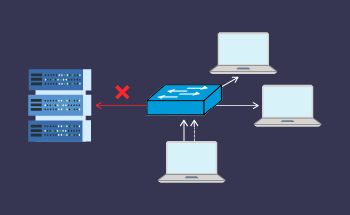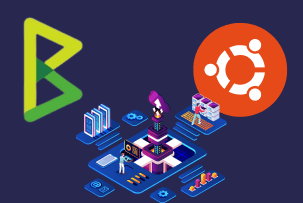Dedicated server hosting and its pros and cons
10:23, 29.04.2016
This topic is about dedicated server hosting and its pros and cons. To begin with, what are dedicated servers? Obviously, the dedicated server is a physical server, so pretty much a computer, which has CPU, hard drive, memory and other useful things. The particular kind of CPU, number of cores, memory and hard drive size completely depend on your specific needs.
Below we'll compare dedicated server hosting with other available hosting possibilities. These are shared hosting and Virtual Dedicated Server (VDS) hosting.
Dedicated server versus shared hosting and VDS
There is no need to tell what shared hosting is or to number all its pluses and minuses. This type of hosting is still quite popular, because it’s rather cheap and demands no special server knowledge from a user. However, installing a control panel, like cPanel, ISPmanager, Direct Admin, on a dedicated server can make your work with it just as easy as with shared hosting account.
The main problem with shared hosting is that you always have to think about your ‘neighbors’. You can’t just choose your OS or restart a whole server any moment you like. With dedicated server it is all up to you, just pick time and software to install. It means that you are absolutely free in installing and running exactly the applications you need for your project, without limiting yourself only with default ones you can get on shared hosting.
Another thing worth noting in case you are going to use shared hosting is security threats. It can be generally not so important, while the probability of such a virus or attack that can get to your data is quite low, but if you are dealing with financial or government web-stuff you probably wouldn't take chances. And using a dedicated server, you can easily make a security level your number one priority.
So, shared hosting is a great thing indeed, when your tasks are not so resource-dependent. But if your web page for example gets monstrous amount of views each day, it could be a serious problem to maintain descent browsing speed, while using shared hosting you have access only to some part of common resources. Also, applications of other users working alone with yours on the same server, may sometimes lead to break down in the operation of the whole server. With dedicated server only you can set a limit of resources, which can be used by applications and no 'neighbors' can bother your server running properly.
As for VDS - the key point is that no matter how close it approaches the best features of the dedicated server, VDS is still a virtual machine sharing physical resources along with other VDS's located on the same VDS carrier. Thus each virtual server becomes only a part of CPU resources and has to share connection port with other virtual servers.
In the same time dedicated server offers the following:
complete access to all specially tuned up hardware and software resources only to the owner.
total control over your server’s configuration: you receive not only the root access, but tools, which allow you to tune up your system exactly the way you want it to be. And there are some specific tasks you simply can’t do without it.
another handy thing that you can do only with dedicated server is to create your own VDS carrier.
If you already have made up your mind to choose dedicated server, here are the ways you can get it:
The first one is leasing. This way can be more preferable if you are not so skilled in hardware issues. It’s like renting a car - you only have to pick the right color and model. Nearly the same with a server, you leave all the routine problems of choosing all the particular devices, which will suite your demands, to a hosting company.
But if you do know the inside and outside of the server and you actually want to tune up all the hardware from the start, then you should probably consider the second option - colocation. In this case you literally buy the server with all its components and the hosting company just keeps it running for you, providing all the necessary conditions for its proper operation.
There is one more additional option of using a dedicated server, which sort of combines two previous ways– some hosting providers offer rent-to-own service. The point is that you come to own a server after you have been renting it for some time, paying some reasonable extra fee.
As for location of the dedicated server - the common decision is to leave all the worries about excessive heat or moisture, or physical security problems to the hosting or data center company. They can manage all the primary climate and security issues for you. The actual extent of actions that can be carried out by a hosting company is scalable in a great measure and can vary from yearly security audits and some basic procedures to complex and specific tasks.
Another thing, which always matters, is pricing:
With colocation you own the server, so you generally pay data center or hosting company for placing your server in a rack, maintenance and some small extra money for Internet connection and electrical power supply. If you need some operations done to your server on site, you can use ‘remote hands’ option, which allows you to use qualified technical assistance of the local personnel. But don’t forget you do have to spend some money for the hardware in the first place.
As for leasing, you have to pay some fixed fee, which depends on server’s hardware specification and web traffic used.
Now, who can get interested in getting dedicated server hosting? Or more straightforward – do you need it?
First of all, you have to consider the price you will have to pay. That is to say generally higher than for VDS with nearly the same parameters. Not to mention the shared hosting pricing.
Second, you have to think if you really need all the possibilities of customizing your server, which dedicated server offers. Will you be able to tune all the hardware and software to get the performance that distinctly differs from the average you can get with VDS?
If your answer is ‘yes’ to both or at least one of the statements above, then you probably dealing with some serious stuff, which demands high security level, boosted performance and reliance, which dedicated server ought to provide.
Anyway, if you can afford it, you probably should go for it!


